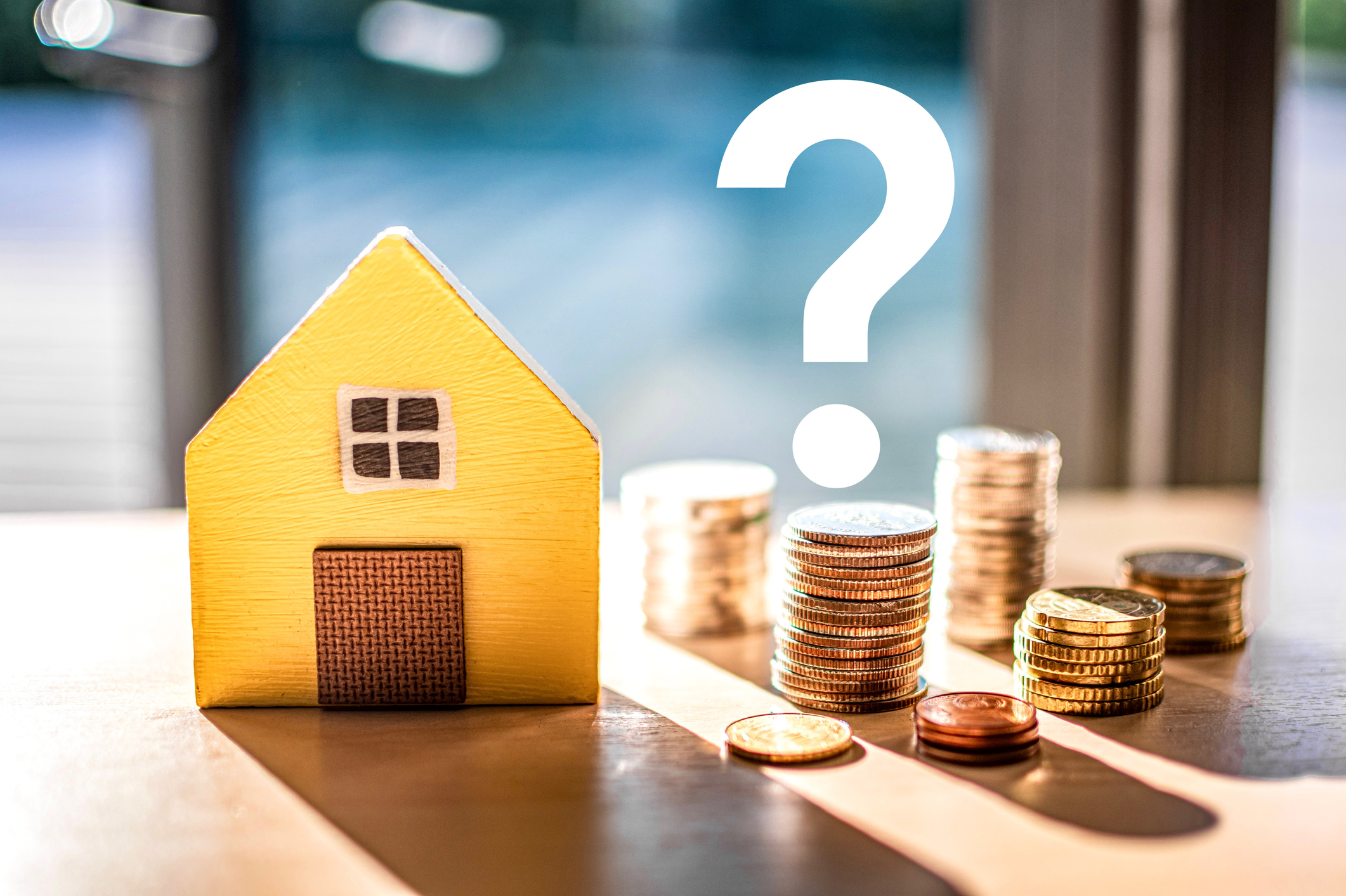With Mortgage Rates Dipping, Is Now a Good Time to Buy a House?
When mortgage rates dip, timing may be everything.

Alexandra Twin
Profit and prosper with the best of Kiplinger's advice on investing, taxes, retirement, personal finance and much more. Delivered daily. Enter your email in the box and click Sign Me Up.
You are now subscribed
Your newsletter sign-up was successful
Want to add more newsletters?

Delivered daily
Kiplinger Today
Profit and prosper with the best of Kiplinger's advice on investing, taxes, retirement, personal finance and much more delivered daily. Smart money moves start here.

Sent five days a week
Kiplinger A Step Ahead
Get practical help to make better financial decisions in your everyday life, from spending to savings on top deals.

Delivered daily
Kiplinger Closing Bell
Get today's biggest financial and investing headlines delivered to your inbox every day the U.S. stock market is open.

Sent twice a week
Kiplinger Adviser Intel
Financial pros across the country share best practices and fresh tactics to preserve and grow your wealth.

Delivered weekly
Kiplinger Tax Tips
Trim your federal and state tax bills with practical tax-planning and tax-cutting strategies.

Sent twice a week
Kiplinger Retirement Tips
Your twice-a-week guide to planning and enjoying a financially secure and richly rewarding retirement

Sent bimonthly.
Kiplinger Adviser Angle
Insights for advisers, wealth managers and other financial professionals.

Sent twice a week
Kiplinger Investing Weekly
Your twice-a-week roundup of promising stocks, funds, companies and industries you should consider, ones you should avoid, and why.

Sent weekly for six weeks
Kiplinger Invest for Retirement
Your step-by-step six-part series on how to invest for retirement, from devising a successful strategy to exactly which investments to choose.

The Federal Reserve cut interest rates again for the third time this year, sparking new conversations about whether now might finally be the right time to buy a home. After years of high borrowing costs, many potential buyers are watching the market closely to see if this is the start of a meaningful shift.
Mortgage rates have continued to trend lower in recent weeks, with the average 30-year fixed rate now sitting at 6.19% in December, according to Freddie Mac. At the start of 2025, that same rate was above 7%. Today, it’s nearly a full percentage point lower, offering some relief for buyers who have been waiting for conditions to improve.
Still, the decision to buy isn’t easy. Home prices remain high, inventory is tight, and inflation continues to weigh on household budgets. For those who already locked in historically low mortgage rates, the idea of trading up for a higher payment can be tough to justify. Yet with rates showing signs of stability and fewer swings week to week, buyers may feel more confident about planning their next move.
From just $107.88 $24.99 for Kiplinger Personal Finance
Become a smarter, better informed investor. Subscribe from just $107.88 $24.99, plus get up to 4 Special Issues

Sign up for Kiplinger’s Free Newsletters
Profit and prosper with the best of expert advice on investing, taxes, retirement, personal finance and more - straight to your e-mail.
Profit and prosper with the best of expert advice - straight to your e-mail.
How the job report impacts rates
The monthly jobs report is a key indicator that reflects the overall strength of the economy. When hiring slows and wages cool, it often signals less inflation pressure, which can help push borrowing costs lower.
With the official November jobs report not due until December, analysts are looking to private data for early clues about the labor market. The latest ADP report showed a surprising loss of 32,000 private-sector jobs in November, signaling a notable slowdown in hiring after months of flat job creation in the second half of the year.
Small businesses were hit hardest, and the declines were concentrated in manufacturing, professional and business services, and construction, though health services continued to add jobs.
Even so, home affordability remains a challenge. Home prices are still elevated, and despite the recent dip in rates, demand has been subdued. That mix raises a familiar question for would-be buyers: Is now the time to lock in a mortgage, or is it better to wait for the market to cool further?

Should you buy a house now or wait?
Housing prices remain elevated, though they’ve softened somewhat. The median sales price of houses sold in the U.S. was $410,800 in July, according to Federal Reserve Economic Data. That’s down from last year’s peak, but affordability is still stretched for many buyers.
For would-be buyers, the math is tricky. Mortgage rates are still high enough to limit affordability, yet first-time buyers consistently make up about one-third of all sales, according to NAR, a sign that demand hasn’t disappeared. Buying offers stability and the chance to build equity, but renting remains the cheaper option in most markets.
Renters, however, are finally seeing some modest relief. The national average monthly rent fell to $1,706 in November, a slight 0.18% decline from October’s revised figure, according to CoStar’s Apartments.com. It marks the fifth straight month of flat or falling rents. Every region of the country posted declines, with the West leading with a 0.4% month-over-month drop, followed by a 0.2% decrease in the South, a 0.1% dip in the Northeast, and a nearly flat 0.01% decline in the Midwest.
In other words, there’s no universal answer on whether to buy now, wait or rent. The decision ultimately comes down to your personal finances and timeline. If you can comfortably qualify and plan to stay put long term, today’s market may still make sense. Otherwise, renting a bit longer could buy you time.
Buy now if you need to move
Not everyone has the luxury of waiting until the housing market cools to buy a house. Maybe your job has transferred you across the country, or your one-bedroom apartment no longer works with your needs.
Even though renting is always an option, if you need to move and feel financially ready for homeownership, meaning you can qualify and meet the monthly mortgage payments and other expenses, it may be better to buy now versus wait.
You can begin building equity while taking advantage of tax deductions from the interest you pay on a mortgage, home-related renovation costs, and property taxes.
Buy now if you plan to stay put
If you intend to stay in your home for a long time, buying now rather than waiting might be smart. That’s because, at the current rate of home appreciation, the house you pass on now will likely cost you more in the future.
Beyond the purchase price, you’ll likely also pay thousands of dollars in closing costs when you buy a home. To justify those costs, it’s best to be reasonably confident you won’t be moving anytime soon. What’s more, selling a home very soon after buying can have serious tax implications.
Buy now if you’re financially stable
The best mortgage deals are available to people with the best credit scores. According to the Federal Reserve Bank of New York, the median credit score for mortgage borrowers was just under 770.
To qualify for a mortgage, you must demonstrate that you are at low risk of forfeiting on your monthly payments. It is also important to have enough in the bank for a down payment and closing costs, which usually range from 2% to 5% of the value of your mortgage and are paid in addition to your down payment.
Wait if you can’t afford to buy
As obvious as that sounds, if you can’t afford the monthly payments, let alone the closing costs, a down payment and other homeownership costs, then it might not pay to buy, at least right now.
Wait until your credit improves
If you need help qualifying for a mortgage at a good rate because of a low credit score, scant employment, a high debt-to-income ratio, or too much outstanding debt, it may be better to wait.
However, keep in mind that many experts predicted home prices would fall in 2023, along with lower interest rates, but neither happened. So now might be a good time to work on your finances so that if prices and rates do drop (and we hope they will), you’ll be ready.
Wait if you can’t find a home
For buyers still searching for the right property, market conditions may gradually be shifting in their favor. Existing-home sales rose 1.2% in October, with month-over-month gains in the Midwest and South, no change in the Northeast, and a decline in the West, according to the National Association of Realtors.
Year-over-year sales also improved in the Northeast, Midwest, and South while slipping in the West, reflecting uneven but steady demand across regions.
NAR Chief Economist Lawrence Yun noted that momentum held despite broader economic uncertainty. "Home sales increased in October even with the government shutdown due to homebuyers taking advantage of lower mortgage rates," Yun said. "Rents are decelerating, which will reduce inflation and encourage the Federal Reserve to continue cutting rates and pulling back their quantitative tightening. This will help bring more homebuyers into the market since the Fed rate has an indirect impact on mortgage rates.”
With lower borrowing costs drawing more buyers in and regional sales showing signs of stabilization, those willing to wait may find conditions improving with potentially more inventory and slightly better affordability ahead.
What it all means for buyers now
There's no right or wrong answer to whether now is a good time to buy a home. That decision is personal and depends on a number of factors. Plus, there’s no way to know what the future will bring for the housing market and mortgage rates.
That’s why it's important to weigh your options carefully and make a decision that makes sense for both your finances and your family.
Explore and compare some of today's top mortgage offers with the tool below, powered by Bankrate:
Related Content
Profit and prosper with the best of Kiplinger's advice on investing, taxes, retirement, personal finance and much more. Delivered daily. Enter your email in the box and click Sign Me Up.

For the past 18+ years, Kathryn has highlighted the humanity in personal finance by shaping stories that identify the opportunities and obstacles in managing a person's finances. All the same, she’ll jump on other equally important topics if needed. Kathryn graduated with a degree in Journalism and lives in Duluth, Minnesota. She joined Kiplinger in 2023 as a contributor.
- Alexandra TwinSenior Retirement Editor, Kiplinger.com
-
 Is Prepaid Wireless Making a Comeback — and Can It Lower Your Phone Bill?
Is Prepaid Wireless Making a Comeback — and Can It Lower Your Phone Bill?Once seen as a budget alternative, prepaid wireless is attracting new attention as networks improve and shoppers look for flexible, lower-cost options.
-
 Job Growth Sizzled to Start the Year. Here's Why It's Unlikely to Impact Interest Rates
Job Growth Sizzled to Start the Year. Here's Why It's Unlikely to Impact Interest RatesThe January jobs report came in much stronger than expected and the unemployment rate ticked lower to start 2026, easing worries about a slowing labor market.
-
 The High Cost of Sunshine: How Insurance and Housing Are Reshaping Snowbird Living
The High Cost of Sunshine: How Insurance and Housing Are Reshaping Snowbird LivingThe snowbird lifestyle is changing as insurance and housing costs climb. Here’s how retirees are adapting and where they’re choosing to go.
-
 The High Cost of Sunshine: How Insurance and Housing Are Reshaping Snowbird Living
The High Cost of Sunshine: How Insurance and Housing Are Reshaping Snowbird LivingThe snowbird lifestyle is changing as insurance and housing costs climb. Here’s how retirees are adapting and where they’re choosing to go.
-
 Hosting a Family Reunion? 10 Essentials for a Lasting Legacy
Hosting a Family Reunion? 10 Essentials for a Lasting LegacyRekindle old friendships, pass down traditions and have a ball at your family reunion. We answer 10 common planning questions.
-
 A Wake-Up Call and a Healthy Dose of Terror: How to Survive Your First Days in Prison
A Wake-Up Call and a Healthy Dose of Terror: How to Survive Your First Days in PrisonThis young man needed to be scared straight after his mother expressed her fear that he was on a path to prison. Hearing these eight do's and don'ts worked.
-
 Tariffs: An Uninvited Valentine's Day Guest
Tariffs: An Uninvited Valentine's Day GuestExpect to pay more for flowers and chocolates this year or find creative alternatives to save on Valentine's Day without looking cheap.
-
 Should I sell my old silverware and gold jewelry now that prices are so high? Or should I hand them down?
Should I sell my old silverware and gold jewelry now that prices are so high? Or should I hand them down?My family silver and gold have sentimental value, but I hardly use them. Should I sell? We asked a professional metals dealer and investment adviser to weigh in.
-
 How Money Guilt Holds Women Back (and How You Can Send It Packing)
How Money Guilt Holds Women Back (and How You Can Send It Packing)Women shouldn't let guilt limit the way they manage their hard-earned wealth. It's time to separate emotion from financial decision-making.
-
 How to Turn Your 401(k) Into A Real Estate Empire — Without Killing Your Retirement
How to Turn Your 401(k) Into A Real Estate Empire — Without Killing Your RetirementTapping your 401(k) to purchase investment properties is risky, but it could deliver valuable rental income in your golden years.
-
 My First $1 Million: Retired Nuclear Power Plant Supervisor, 68, Wisconsin
My First $1 Million: Retired Nuclear Power Plant Supervisor, 68, WisconsinEver wonder how someone who's made a million dollars or more did it? Kiplinger's My First $1 Million series uncovers the answers.